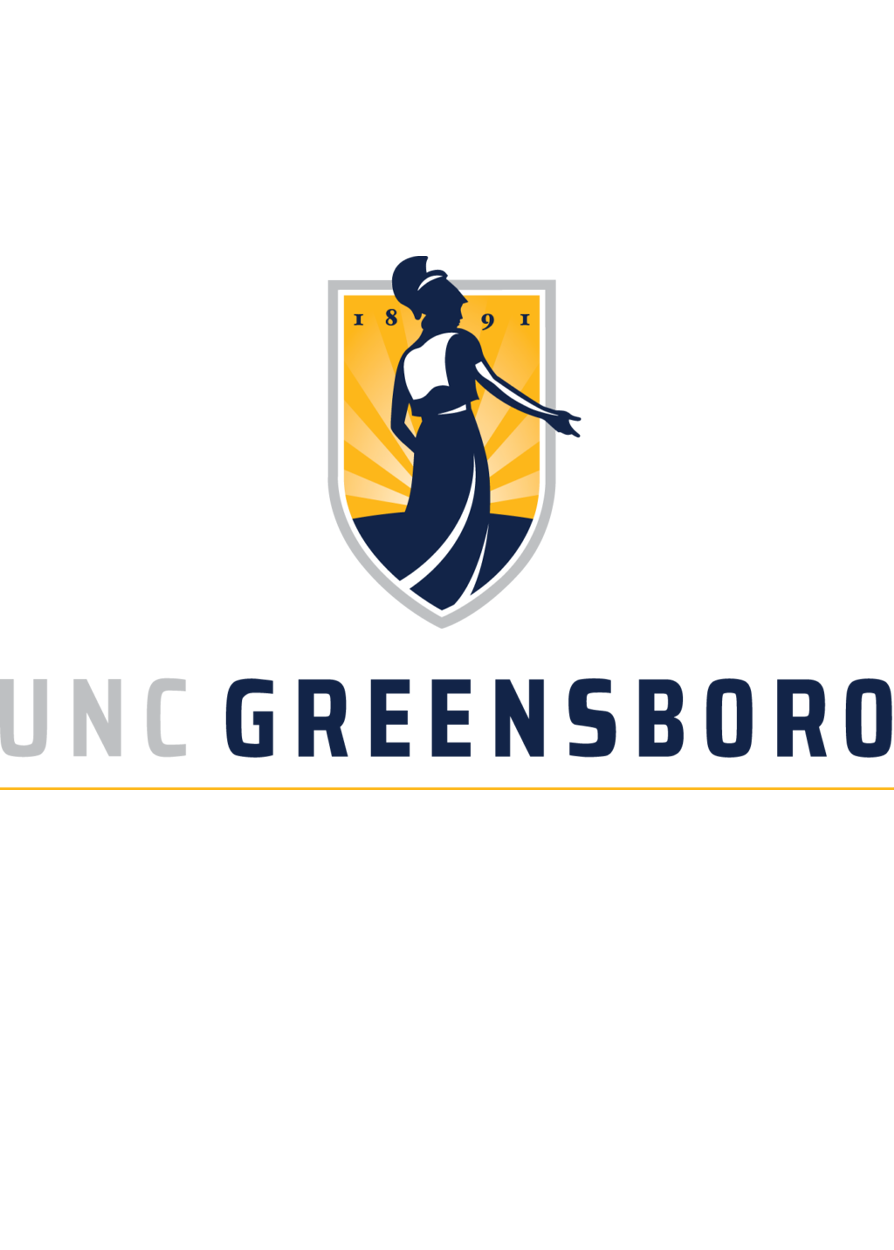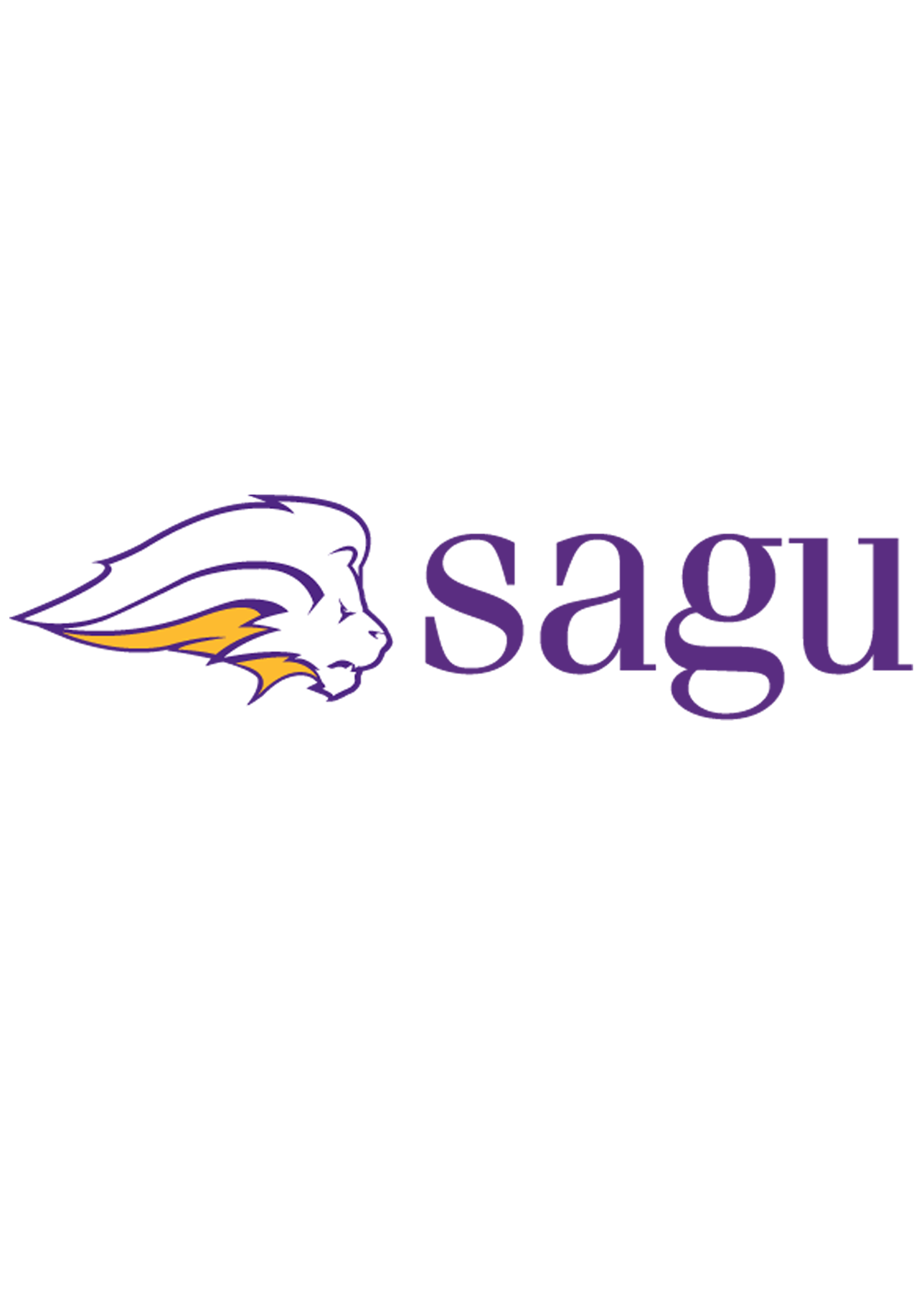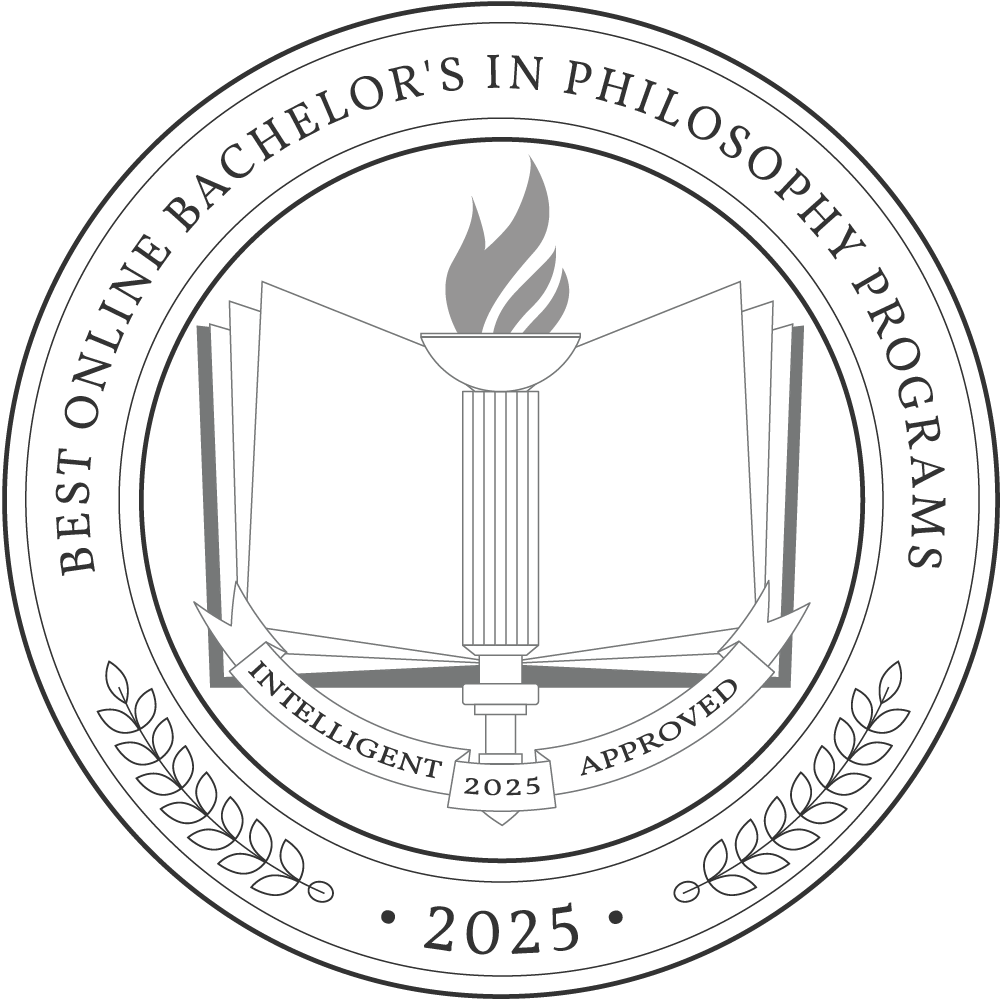A degree in philosophy is ideal for those with an analytical mindset looking to gain critical thinking skills essential in many industries — such as business, teaching, and ministry. In addition to honing critical thinking, students will develop strong problem-solving skills, effective communication, and the ability to construct and evaluate arguments.
Graduates can become Human Resources specialists, earning a median salary of $67,650, or members of the clergy, with a median salary of $58,920. With further education, they can pursue careers as educators, where high school teachers see a median salary of $65,220, or as lawyers, with a median salary of $145,760.
The average completion timeline for an online bachelor’s in philosophy is four years, identical to that of traditional programs, with an average cost of $25,910 for the 2020-2021 academic year.
Why Trust Us
The Intelligent.com Higher Education Team is dedicated to providing students with independent, equitable school and program rankings and well-researched resources. Our expert-driven articles cover topics related to online colleges and programs, paying for school, and career outlooks. We use data from the U.S. Department of Education’s College Scorecard, the National Center for Education Statistics, and other reputable educational and professional organizations. Our academic advisory team reviews content and verifies accuracy throughout the year for the most current information. Partnerships do not influence rankings or editorial decisions.
- Analyzed over 2,000 national, accredited, and nonprofit colleges and universities
- 800+ rankings pages are reviewed and updated yearly
- Content is informed by reputable sources, surveys, and interviews with academic advisors and other experts
- Over 100 data points are reviewed for accuracy and quality throughout the year, including sources
How we rank schools
Our list features the best online Philosophy degree programs at top colleges nationwide. Each school featured is a nonprofit, accredited institution — either public or private — with a high standard of academic quality for post-secondary institutions.
We evaluated each school’s program on tuition costs, admission, retention and graduation rates, faculty, reputation, and the student resources provided for online students. We collected data from trusted sources like the National Center for Education Statistics, individual school and program websites, school admissions counselors, and other data sources. Then, we calculated the Intelligent Score on a scale of 0 to 100 based on the following criterion:
Academic Quality:
- Admission rate versus enrollment rate
- Retention rate of students who return after year one
- Accreditation status (regional and programmatic)
- Nonprofit status, both private and public institutions
Graduation Rate
- Overall graduation rate
- Total number of currently enrolled students, including diversity metrics
- Student-to-faculty ratio
Cost and ROI
- In-state and out-of-state per-credit tuition rates and fees
- Required credits to graduate
- Earning potential after graduation
- Availability of federal student loans, scholarships, and other financial aid options
Student Resources
- Available student services for online-only and hybrid programs
- On-campus amenities like tutoring centers and the number of libraries
Read more about our ranking methodology.
Best 17 Accredited Online Bachelor’s in Philosophy Programs
FiltersInstitution Type
Status
- Intelligent Score
- Alphabetically By University Name
- Acceptance Rate
- Enrollment
- In-state Graduate Tuition
- Out-of-state Graduate Tuition
- In-state Undergraduate Tuition
- Out-of-state Undergraduate Tuition

University of Arizona
Intelligent Score: 99.48In-state: $10,990
Out-of-state: $33,273
In-state: $11,938
Out-of-state: $11,938
SAT: 1090-1350
ACT: 21-29
$500
Online, On-Campus
Western Association of Schools and Colleges Senior College and University Commission
120

Arizona State University
Intelligent Score: 97.52In-state: $10,710
Out-of-state: $28,800
In-state: $11,720
Out-of-state: $11,720
SAT: 1100-1320
ACT: 21-28
$624
Online, On-Campus
Higher Learning Commission
120

UMass Lowell
Intelligent Score: 96.13In-state: $15,791
Out-of-state: $35,779
In-state: $14,014
Out-of-state: $14,014
SAT: 1200-1390
ACT: 27-32
$385
Online, Hybrid
New England Commission of Higher Education
120-122

UNC Greensboro
Intelligent Score: 95.07In-state: $17,797
Out-of-state: $34,148
In-state: $20,960
Out-of-state: $20,960
SAT: NA
ACT: NA
Resident: $184
Non-Resident: $368 - $865
Online, On-Campus
Southern Association of Colleges and Schools Commission on Colleges
120

Fort Hays State University
Intelligent Score: 94.35In-state: $4,140
Out-of-state: $14,580
In-state: $3,726
Out-of-state: $3,726
SAT: N/A
ACT: N/A
$242
Online, On-Campus
Higher Learning Commission
120

University of Memphis
Intelligent Score: 93.30In-state: $8,208
Out-of-state: $12,048
In-state: $9,216
Out-of-state: $9,216
SAT: 990-1200
ACT: 19-26
$431
Online
Southern Association of Colleges and Schools Commission on Colleges
120

University of Colorado Colorado Springs
Intelligent Score: 91.01In-state: $38,878
Out-of-state: $66,516
In-state: $46,012
Out-of-state: $46,012
SAT: 1000-1270
ACT: 21-28
Resident: $978
Non-Resident: $584
Online, On-Campus, Hybrid
Higher Learning Commission
120

Portland State University
Intelligent Score: 90.31In-state: $7,907
Out-of-state: $25,536
In-state: $14,652
Out-of-state: $14,652
SAT: 1000-1190
ACT: 17-24
Resident: $207
Non-Resident: $627
Online, On-Campus
Northwest Commission on Colleges and Universities
120

University of Missouri - St. Louis
Intelligent Score: 89.54In-state: $9,330
Out-of-state: $27,612
In-state: $9,478
Out-of-state: $9,478
SAT: 1110-1320
ACT: 23-29
Resident: $504
Non-Resident: $1,253
Online, On-Campus
Higher Learning Commission
120

Oregon State University
Intelligent Score: 88.13In-state: $9,846
Out-of-state: $29,445
In-state: $13,257
Out-of-state: $13,257
SAT: 1080-1310
ACT: 21-29
$366
Online, On-Campus
Northwest Commission on Colleges and Universities
120

University of New Orleans
Intelligent Score: 88.04In-state: $6,090
Out-of-state: $10,926
In-state: $6,090
Out-of-state: $6,090
SAT: 1000-1270
ACT: 18-24
Resident: $315
Non-Resident: $476
Online, On-Campus
Southern Association of Colleges and Schools Commission on Colleges
120

UT Martin
Intelligent Score: 87.25In-state: $11,332
Out-of-state: $28,522
In-state: $11,468
Out-of-state: $11,468
SAT: 1140-1303
ACT: 25-31
In-State: $434
Out-of-State: $472
Online
Southern Association of Colleges and Schools Commission on Colleges
120

University of Southern Mississippi
Intelligent Score: 87.06In-state: $8,786
Out-of-state: $10,786
In-state: $8,786
Out-of-state: $8,786
SAT: N/A
ACT: 19-26
$416
Online, On-Campus
Southern Association of Colleges and Schools Commission on Colleges
124

Albertus Magnus College
Intelligent Score: 85.21In-state: $34,410
Out-of-state: $34,410
In-state: $21,120
Out-of-state: $21,120
SAT: N/A
ACT: N/A
$1,680
Online
New England Commission of Higher Education
120

Holy Apostles College and Seminary
Intelligent Score: 84.43In-state: $25,600
Out-of-state: $25,600
In-state: $18,433
Out-of-state: $18,433
SAT: 1070
ACT: 24
$395
Online
New England Commission of Higher Education
120

University of Illinois Springfield
Intelligent Score: 83.19In-state: $14,317
Out-of-state: $33,824
In-state: $15,016
Out-of-state: $15,016
SAT: 1200-1460
ACT: 27-33
$367
Online, On-Campus
Higher Learning Commission
120

Southwestern Assemblies of God University
Intelligent Score: 82.07In-state: $20,496
Out-of-state: $20,496
In-state: $10,710
Out-of-state: $10,710
SAT: 900-1120
ACT: 16-22
$430
Online, On-Campus
Southern Association of Colleges and Schools Commission on Colleges
120
How to Choose an Online Bachelor’s in Philosophy Program
Choose your area of study
While philosophy is already relatively niche, you can further align your education with your interests and career goals. Not all programs offer specific specializations, but you’ll want to find one with courses that support your focus. Consider asking yourself:
- What philosophical topics am I most interested in?
- Which courses have I enjoyed the most so far?
- Do I prefer theoretical or applied philosophy?
Different specializations may include options like ethics, political philosophy, and metaphysics. Ethics is ideal for those interested in moral issues and public policy, political philosophy suits those drawn to governance and justice, and metaphysics often appeals to those curious about existence and reality.
Research schools and programs
Now that you’ve decided on an area of study, you can focus on researching schools and programs. You may come into this process with some questions of your own, but here are a few others worth considering:
- What are the faculty’s qualifications and research areas?
- Does a recognized accrediting body accredit the program?
- Are there opportunities for internships or research projects?
- What is the average class size and student-to-faculty ratio?
- What support services are available for online students?
Most of this information will be readily available on program websites, but many students also benefit from attending a virtual open house or contacting an admissions counselor.
Prepare for tests and applications
Test and application prep for your top programs may feel daunting, but you can simplify this process by creating a general timeline. For example, it’s generally ideal to request transcripts and letters of recommendation at least six months before applications are due, as these materials can take some time to gather. Similarly, you’ll want to draft your personal statement or essay responses four months before any deadlines to allow enough time for revisions.
While some programs have moved to test-optional policies, many still require standardized test scores. Consider enrolling in a SAT or ACT prep program at least four months before the test date to boost your scores.
Select your program
When acceptance letters arrive, you may have a big decision to make. Take a moment to revisit your initial research criteria, focusing on what’s most important to you — like curriculum relevance, faculty you’re excited to learn from, and support services for online learners. Then, reassess the total cost of attendance for each program, including tuition, fees, and living expenses, and compare these costs to any financial aid offers.
Determine how you’ll pay for your degree
To pay for your degree, start by filing the FAFSA. This will help you see early on if you qualify for any federal grants — for example, the Pell Grant — and determine your eligibility for federal loans, which can be helpful to know ahead of time. Then, seek institutional scholarships and grants and explore work-study programs for additional income. If you’re currently employed in a related field, you may be eligible for employer tuition reimbursement, which can significantly offset costs.
When considering loans, prioritize federal loans over private ones due to better interest rates and repayment options.
What Can You Expect From an Online Bachelor’s in Philosophy Program?
By opting for online learning to pursue your bachelor’s in philosophy, you can anticipate a flexible and comprehensive education in the fundamental aspects of philosophical thought. Curriculums include courses in core areas such as ethics, metaphysics, epistemology, logic, and the history of philosophy.
As a student, you’ll engage with the works of prominent philosophers, from ancient figures like Plato and Aristotle to contemporary thinkers. These programs emphasize critical thinking, analytical skills, and the ability to construct and evaluate arguments, all highly valued in various industries. Most online philosophy programs require the completion of a senior thesis, which serves as a capstone project, allowing students to conduct in-depth research on a topic of their choice.
The average completion timeline is typically four years for full-time students. However, the flexibility of online learning often accommodates part-time students, who might take five to six years to complete the degree, depending on pace and other commitments.
Potential courses you’ll take in an online bachelor’s in philosophy program
- Introduction to Philosophy: Often one of the first courses students take, this course introduces learners to the significant questions and methods of philosophy. Students will explore the nature of reality, knowledge, and morality, gaining a broad understanding of philosophical inquiry and its historical development.
- Cosmology and Culture: In this course, students examine how different cultures throughout history have understood the cosmos. They study different cosmological theories and their impacts on cultural beliefs, practices, and worldviews, gaining insights into the relationship between scientific and philosophical perspectives on the universe.
- World Religions: This course overviews the major world religions — Hinduism, Buddhism, Judaism, Christianity, and Islam. Participants will learn about these religions’ fundamental beliefs, practices, and historical development, as well as their philosophical underpinnings and impact on global culture.
- Philosophical Issues in Death and Dying: Students in this course explore the intellectual dimensions of death, dying, and the afterlife. Topics include the nature of mortality, ethical issues surrounding end-of-life care, and diverse cultural and philosophical perspectives on what it means to die well.
- Politics and the Law: This course examines the intersection of philosophy, politics, and legal theory. Students will engage with concepts like justice, rights, and the role of government, analyzing philosophical arguments that have shaped political and legal systems throughout history and in contemporary society.
Online Bachelor’s in Philosophy Degree Frequently Asked Questions
How do I apply to an online bachelor's in philosophy degree program?
Most of these programs offer a relatively straightforward application process, typically including:
- An online application form
- Official high school transcripts or GED equivalent
- Standardized test scores, if required
- A personal statement or essay
- Letters of recommendation
Talking to an admissions counselor can provide insights into program specifics and help ensure you meet all requirements, increasing your chances of a successful application.
How much does an online bachelor's in philosophy degree cost?
For the 2020-2021 academic year, the National Center for Education Statistics reported average undergraduate tuition at $25,910. However, many factors can cause this number to fluctuate, including whether the institution is public or private and your residency status.
Beyond tuition, there are other expenses that you’ll want to prepare for, such as technology fees, course materials, and textbooks. While these costs might seem minimal compared to tuition, they can add up over time and significantly impact the overall cost of attendance.
How long does it take to earn an online bachelor's in philosophy degree?
Obtaining an online bachelor’s in philosophy takes four years for full-time students, while part-time students may take up to six years to complete degree requirements. The total number of required credits, which can vary by program, also affects completion time — making it essential to assess credit requirements early to determine how long it’ll take you to graduate.

